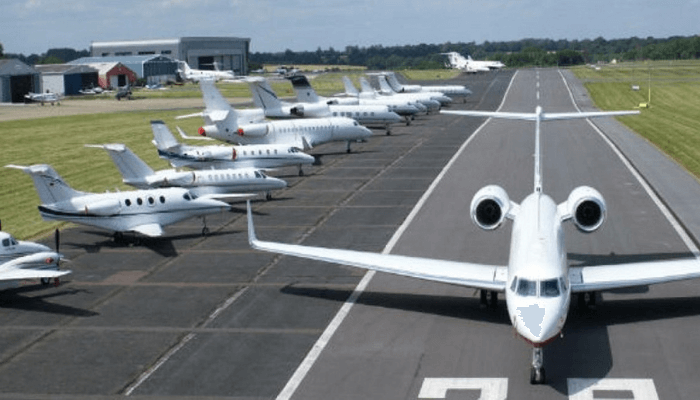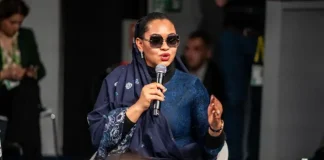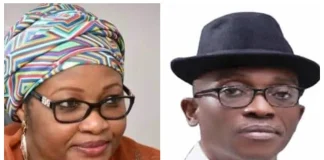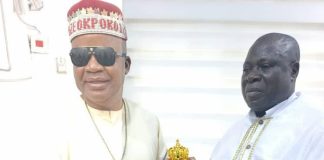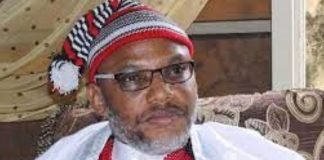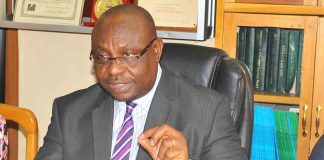🌿 Ruzu Non-Alcoholic Herbal Bitters
Ruzu Non-Alcoholic Herbal Bitters is a natural health supplement specially formulated to:
- ✅ Promote general wellness
- ✅ Detoxify the body
- ✅ Support the treatment of various ailments
Made from a powerful blend of 100% organic and medicinal herbs, Ruzu is completely alcohol-free, making it ideal for:
- 👪 All age groups
- 🌱 Health-conscious individuals
- 🌿 Anyone seeking non-alcoholic herbal remedies
Whether you're looking to boost your vitality, cleanse your system, or support healing the natural way, Ruzu Bitters offers a trusted herbal solution.
By Soji Apampa
How should we liken a situation when you buy a ticket and just as you are about to travel, the airline postpones your flight by rescheduling it, often by days, not hours, or just simply cancels the flight but tells you that you cannot get a refund as the ticket is valid for one year? They advise you to go and rebook. You are stranded, and there appears to be nothing you can do about it. The authorities remain mum, and passengers suffer in silence (well, sometimes they make noise on social media). We are not even talking about demanding compensation; just getting our money back in such a scenario would be the first prize.
This reminds me of a Yoruba idiom, and I like the version I saw online from Adebayo Adegbite, which goes something like, “Olówó gba ìyàwó ọ̀lẹ. Ọ̀lẹ ń kẹ́ laahilaa,” meaning, “the rich man snatches the wife of the weakling, and the weakling can only sigh in resignation.” Mediaeval Europe reportedly also had something like this, perhaps even worse, referred to as “Le Droit du Seigneur.” The myth goes that the lord of a mediaeval estate had an alleged legal right to spend the night with any young maiden of his choosing, particularly on her wedding night (jus primae noctis), and similarly, nothing could be done about it. Have some Nigerian airlines negotiated a sort of ‘Droit du Seigneur’ for themselves that our regulators have bought into?
‘Droit du Seigneur’ is a metaphor for oppression, exploitation, and the abuse of power. In mythology, this level of arrogance displayed towards passengers by some Nigerian airlines would be referred to as hubris, and such hubris “violates the bounds set for humans and is punishable by the gods.” But Vox Populi, Vox Dei, meaning the voice of the people, is the voice of God. This means the power to seek redress and correct this hubris is in our hands, the passengers. “Our mumu don do!”
According to a report from the U.S. Department of Transportation on on-time arrival performance in January 2024, on-time arrivals were at 72.82 percent, while delays and cancellations were 7.01 percent and 3.79 percent, respectively, for US airlines. Comparing this performance with Nigeria’s domestic airlines, the Nigeria Civil Aviation Authority (NCAA) reports that in the first quarter of 2023, only about 43 percent were on schedule, with 55 percent (10,128 flights) of the 18,288 domestic flights delayed and 1.55 percent (284) cancelled. We don’t have the proportion that was not classified as cancelled but as “rescheduled.” This provides a picture of just how poorly the sector is doing with on-time arrivals. If an airline can no longer keep their side of the bargain to get me to my destination and has to cancel or reschedule beyond my date of travel, am I entitled to ask for my money back, request compensation, or ask for my ticket to be endorsed to another airline that can take me to the destination, or a combination of the above?
The Nigeria Civil Aviation Authority (NCAA) needs to outline very clearly what the standard operating procedures should be when a flight is cancelled, even if technically repositioned as a “rescheduled” flight where I am asked to wait more than a few hours of delays. After all, when there is a no-show, the passenger pays. Even when the passenger is late, the airline reserves the right to fill the seat by taking other passengers who are on standby, so why can’t we have our money back and receive compensation when my flight is cancelled or “rescheduled” by days? For this, we shall be calling on the Federal Competition and Consumer Protection Commission (FCCPC) for help as an Ombudsman. Between the NCAA and the FCCPC, we should be able to get a grievance reporting mechanism that we can trust (not that there isn’t any) and punitive fines meted out to any airline that refuses to give the duty of care to passengers as outlined in agreed-upon SOPs.
We know the airlines too have problems with their regulators. This is a time-sensitive industry, yet requests for flight clearance are still being typed out manually in forms by typewriters (in triplicate) before payments are made, bank tellers secured as proof of payment, and then hand-carried from one approving authority to the next. According to a senior member of the sector, “AOC (Air Operators Certificate) renewals, which form the foundation of any aviation company in Nigeria, face a monumental battle to renew the said certificate. This process is in five phases and can at times take 3-6 months beyond the date of expiration before it is re-issued, even though you start the process two months before expiration. The same thing can be said for virtually all renewals in the aviation sector; everything is conducted manually and harms the efficiency of an operator’s activities.”
Now that the rest of the world is using smart forms and digital signatures, Nigeria’s aviation sector is still stuck in the era of manual forms and typewriters! For improved efficiency, accuracy, data security, reduced costs, real-time information, and a better passenger experience with our airlines, there are Nigerian firms that can help with critical reforms in at least the following areas:
– Value stream mapping and enhanced data security
– Process Mapping with Secure Data Visualisation
– Process Optimisation with Secure Automation
– Data Management with Secure Cloud Storage
– Inventory Tracking with Secure Data Access
Except there is true “Le Droit du Seigneur” for some Nigerian airlines, it is time to stop the hubris and bring some relief to passengers. It is time to get value for money from our local airlines (and the international ones too, mind you). “I am my neighbour, and my neighbour is me.” Are you incensed enough about the nonsense going on in the aviation sector to start an integrity movement about it? Let’s join hands to change Nigeria, one issue at a time. “Olówó gba ìyàwó ọ̀lẹ. Ọ̀lẹ ń kẹ́ laahilaa” will never be your portion!
Soji APAMPA is an International Corporate & Political Governance Expert. He is a member of the Free Enterprise and Democracy Network of the Centre for International Private Enterprise (CIPE) USA, and in 2020 he was invited to be a member of the WEF Global Future Council on Transparency and Anti-Corruption.

